
Christina Carter was born in the bayou city of Houston, Texas in November of 1968, and co-founded the group Charalambides there in December of 1991. Ever since then, she has deeply mined her own vein of sound-as-music with voice, guitar (both electric and acoustic), piano, and keys. For the past several years, Christina has utilized extended improvisational guitar passages within and without song-medley structures; re-contextualized certain Charalambides songs within the spare single guitar/voice form that birthed much of the group's music; and recently, investigated 'the song' as a thing unto itself, specifically concentrating on 'the word'- both in her own lyric writing and her interpretions of the work of other lyricists.

In addition to performing extensively in the US, UK and Europe as a solo artist, Christina has played and recorded in various groups and duos with Black Forest/Black Sea, Maria Chavez (as Weird Cookie), Loren Connors, Chris Corsano, Dredd Foole, Sandy Ewen, Paul Flaherty, Gown (as The Bastard Wing), Shawn David McMillen, and Thurston Moore. She is also a permanent member of Scorces (with vocalist/pedal steel player Heather Leigh Murray).

Concurrent with her work as a musician, Christina has expanded her involvement in writing and visual art. Her poetry has been published by Digitalis Industries, The Ecstatic Peace Poetry Journal, Glass Eye, and Slow Toe Press. In 2007, her art piece Forever 21 appeared at Salon Mijangos in San Antonio, Texas as part of a concert/exhibit featuring Tom Carter, Warmer Milks, and Tetuzi Akiyama. Forever 21 was a labor of love and destruction: six of her handwritten diaries cut up painstakingly with scissors into miniscule pieces, which then filled a large yellow plastic shopping bag.

Christina currently resides in Austin, Texas. Her latest albums are the Charalambides album Exile (Kranky), the double LP reissue Texas Blues Working (Blackest Rainbow), and two solo CDRs: Imaginee (Many Breaths) and Texas Modern Exorcism (Many Breaths). Shelter Press has also published Juvenile Record, a chapbook of Carter's poems, in their Poetry Room series. Future releases include the 12" Character Study (Drawing Room) and Quartet, a 3" CD based on the short stories of Jean Rhys, in the Wist Records Book Report series.

What do you expect from music?
Nothing now. I used to expect of art some kind of purpose, corrective, counterforce, or example for us of some different realm or organizing principle that we could take heed from and eventually change our values, our culture. (Maybe ‘hope’ is a truer word than ‘expect’.) Music as art still exists. It’s hanging on, but like many creatures, may be hitting up against its zones of intolerance beyond which it can’t survive. When this happens it’s adapt, migrate, or die. But, when adaption and migration both equate to death because the creature becomes unrecognizable through changing to fit its new environment… it essentially means extinction. Or, another way to look at it is that music as art might be moving towards dipping below its minimum viable population. Then adaptation and migration becomes impossible.
Which work of your own are you most surprised by, and why?
I’m surprised by it all. I’m surprised that I managed to do it at all. I’m surprised that I found a way to transform inner experience into outer experience. I’m surprised that I found a way to coalesce thought, feeling, and action into something that exists independently of me. I’m surprised when I realize that I made myself do this. Or, there is a part of me, that I don’t fully understand, that made myself do this. I’m most surprised when I find that my thoughts and feelings are working covertly to create a whole that I understood only as its parts while making it.

And, I come to some understanding of the whole only much later. Sometimes that understanding comes gradually, sometimes suddenly. I am surprised because my parents grew up in an era and culture in which women were considered accessories to men’s lives and ambitions. I wasn’t supposed to do anything in the outside world. My parents, my parents’ parents, the schooling I received, the Church: within all of these relationships and paradigms it was as if, in a way, I didn’t exist. In a way I am surprised that my I became as expressive as it did. Because it did face resistance - even within myself. It still faces resistance, not only or primarily from myself, but from current permutations of this same cultural dynamic in which now there is only doing.
What quality do you empathize most with in a musician?
One quality? Forceful humility combined with a willingness to look deep and long into past, present, and future, i.e. they know it’s not all about them. Yet, they’re willing to give everything they do have, even so much as to risk failure or embarrassment.
What are the challenges and benefits of today's digital music scene?
Are there any benefits now? If so, for whom? First, the ‘digital music scene’ has to be defined and placed within the larger context. It is part of the digital image scene, the digital information scene, the digital social scene, the digital ‘reality’ scene. What kind of benefits are there to be had? More access? More visibility? As long as one joins in… is willing to suppress/repress the uncomfortable feeling/realization that the ‘game’ has only expanded, become more demanding, more unforgiving. The game, its winners and losers, has become digitally geometric on an even more embedded, elevated, and omnipresent plane.

But, what does access and visibility get you? What are you accessing? What is the price of visibility? Visibility to whose eyes? Is it possible to resist any longer? From my vantage point, yes, but at a greater cost than ever before. It has to be remembered that money is always present within these discussions. There was, perhaps, a ‘sweet spot’, a decade ago or so when it seemed possible to harness the communication and transmission capacities for the good of artistic creation – for the good of the artist and listener. Once the appreciation of reissue fetishism and vinyl fetishism took hold in tandem with the depreciation of core values of artistic creation, the stage was set for the growing bifurcation of the music scene into the extremes that we are witnessing now. And, also it can’t be forgotten that the digital image-information-social-music scene provided a new, mega-multiplied array of advantages for corporate magicians who can work their spells in the minutest spaces, gaps, thresholds. I imagine we’ll see a full return to the hostile conditions of ‘underground’ music of the 1980s – 90s, without the uplifting aspect of the creative foment of that time period. If we haven’t already returned there yet.
Here is an anecdote: I used to release CDRs on Many Breaths, my own label – what used to be called a ‘vanity’ label. Vanity: funny, right? Being able to release that work in that format led to the fullest, most sustained period of artistic reach, growth, daring that up to that point I had ever had. Perhaps my best solo work. I’m thinking of the period from Two Nights Film into Texas Modern Exorcism, with the last three CDRs, Trickster Who Is Like God, Imaginee, and Texas Modern being a last-gasp hanging on after-the-fact. By that time, I could no longer sell CDRs. People told me that they would only buy vinyl. (I assume that also means that their other choice was to stream or download music for free.) When I pointed out that vinyl is an expensive, time-consuming, artistically limiting format, I was met with the myopic response that vinyl is the ‘thing’ now: the ‘superior’ format, the ‘desirable’ format.
No matter that with the CDR comes artistic freedom to develop on an organic time-scale, to create the work as it creates itself without artificial ~ 20 minute sides, and to make the work without debt or financial backers. When a person bought a CDR, they were first and foremost funding the continuation of artistic work – not externalities like industrial processes and marketing campaigns. There was a direct exchange between artist and listener that fostered the aspect that should matter most, the music itself. This doesn’t only affect my ability to create and release original music. Touring becomes difficult as a result. When I ceased to be able to create work by funding my work directly and receiving payment directly, I ceased to be able to structure my own time-scape. I don’t think I am the only one who has experienced this narrowing of possibilities over the past decade. It has especially corroded, rusted, calcified in the past five years.
If vinyl were, in fact, the objectively superior format, there would still be room for an argument re. artistic freedom and control. However, clearly vinyl (especially as manufactured now) has so many drawbacks for the whole process – including, in many cases, sound – that it is surprising to me that it has become so dominant. The resurgence and dominance of vinyl really has been an amazing coup. I wish someone would do some serious work at tracing this phenomenon backwards. I’ve seen a lot of ‘Gee, Isn’t This Interesting’ kind of articles. But, haven’t seen many that combine skepticism, investigation, and implication.
What are your motivations for playing music? And, what do you like the most about being a musician?
I can explain my motivations in the past, which I think I have explained in answers to other questions. But, this is a present tense question. And, the answer to that question is, simply: I don’t know.

What I’ve liked most about being a musician…. There is a line of demarcation here. I’ve not considered myself a musician. Yet, it’s not that musicianship is irrelevant. But, music is the realm in which my curiosity, intellect, emotion, experience could emerge and be concretized. In music, the solitary and cerebral intermixes with the communal and visceral like no other art form. Music provides living contact. The isolation of writing or visual art was too one-sided to answer my needs. There is a drawback to music, though. The viscerality of music makes it easy for its artistic roots to be forgotten. I’m not one for the conservatory. Outside the academy, it is difficult to explain one’s work as art. And, music’s connection to anti-academic poetry, visual art, dance, theater, politics, etc. becomes more difficult to discern, the more it’s conjoined with the digital image-information-social scene. Or, rather, all of those artistic realms become conflated, their power neutralized as entertainment.
Where are your roots? What are your secret influences? And, what is your relationship with other disciplines such as painting, literature, dance, theater...?
Thinking back to childhood and early teen-years, in chronological order: 1) adoption; 2) Catholic mass; 3) ballet; 4) American witchcraft; 5) Greek and Roman mythology 6) natural science; 8) visual art; and, 9) poetry. Some formative experiences were reading about Goethe’s observational and intuitive natural science, seeing Ingres’s Princesse de Albert de Broglie at the Metropolitan, choosing lithographs of some of Matisse’s cut-outs to hang up in my newly redecorated bedroom (the pink-checkered frilly bedspread got chucked, replaced with blue and yellow), and reading T.S. Eliot in one of my father’s college books. Then, finding my way to Mallarmé, Baudelaire, Dostoyevsky, Camus, H.D., Beckett… The films I remember from that time are Picnic At Hanging Rock and Pretty Baby. This brings me up to about 17 years old. Then I stepped out into the world and started to step away from the hothouse aspects of this stuff. Though Princesse still strikes me as quite mystical. And, recently, I read The Waste Land for the first time in 30 years and was struck by just how imbedded that language still is in my subconscious, even as I conceptualize Eliot as being almost (if not for this early experience) nonexistent in my pantheon … This makes it sound like I grew up in a home devoted to art and culture. But, it wasn’t so. Every little bit was some morsel to me, but detritus to those around me… In my early 20s, the fields of impolite, extreme, obsessive, oblique, gut-fueled, questioning, questing, goading U.S. arts became much more important to me than the previous stuff….

My secret influences will have to remain secret. I don’t know what they are.
All of these disciplines, including music, are variations on and expressions of philosophy. All art is applied philosophy, i.e. a working out of foundational statements, organizing principles, propositions about the nature of reality and our experience within it.

If you could, what would you say to yourself 20 (or 25) years ago, about your musical career?
I choose the word ‘trajectory’ over the word ‘career’. But, I would say: “There are difficult times ahead.”
What is some valuable advice that someone has given to you in the past?
I’m trying to remember someone giving me advice in music, or otherwise. I think people’s actions are their valuable advice.
But, I’ll give some potentially valuable advice: Don’t read Journal of Albion Moonlight without intense psychological preparation.
What projects are you working on now and what does the future hold?
It’s not clear to me what the long-term future looks like for me (and others). A possible future is not being able to create simply because of economic issues, i.e. lack of time caused by scrambling for money through piling-up employment hours. Music no longer provides for even a supplemental income. With age comes a more precarious situation through possible lack of adequate health care, housing, employment, and human ‘irrelevancy’ etc. This is the United States of America. For now, it’s difficult although some things are still happening. Some records are winding their way through the completion process. Root Strata recently released the Masque Femine LP reissue. Emerald Cocoon just released the L’Etoile de Mer LP reissue. And, Drawing Room is going to be reissuing two Charalambides albums this year, Glowing Raw and Strangle The Wretched Heavens, both on LP.
Dream about your perfect instrument.
I don’t think a perfect instrument could ever exist. But, I am glad to have my body and the guitar – my best instruments. So, I don’t find a need to dream about non-existent or even better instruments. I wish I could apply this outlook to the world, but can’t. I don’t think a perfect world could ever exist. But, I don’t think this world is our best. So, I find the need to dream about a better world. It is frustrating because I don’t think I will see a better world during my lifetime. And, I will die knowing that so many people continue to suffer so much.
What’s the difference between a good instrument and a bad one?
If I am thinking about the body, I wouldn’t say there is a good instrument or a bad instrument. If I am thinking about the guitar, I would say on a good instrument the wood feels soft and where the strings sit is not too high or too low. And, it feels like it accepts my touch as a part of our agreement. A good guitar makes me feel like it breathes with me. It feels real. It feels like it has a body. For these reasons, a guitar with space inside its body is best for me.
A bad guitar doesn’t want to be a guitar because the person that made it doesn’t really want to make a guitar, just an object. A bad guitar doesn’t feel real. It just feels like a thing. Also, a guitar becomes better the more history I have with it. The guitar, a good guitar, I have had for a while needs repairs. That makes me nervous like surgery. I also own a bad guitar, but I don’t know what to do with it. How can I give away or sell a guitar that I think is bad? But, I also don’t want to just throw it away. It’s my fault that I have it because I bought it too quickly with the wrong mind. It’s sitting there for three years or more not played, unfortunately. That said, almost any guitar can be played unless totally broken.
How would you define silence?
Silence is an ideal concept constructed by the human mind. It is like infinity, purity, perfection, and God. I have never experienced silence except as an idea. Quiet is something else altogether. Although, some people claim that quiet is a kind of silence. Often, it seems people use the word silence to mean the lack of human speech, i.e. “Silence!” In both cases they are denying the ideal concept and more so reflecting reality. I think it is important to think about the ideal concept, because it allows us to reflect upon the strangeness of the human mind.

[Well, I do have to admit that what I’ve said here is not true. I just remembered something. When I was a child, I did have a frightening moment when I did experience complete silence. I am not sure what that experience was. Being between awake and sleep? It happened when I was in bed, still awake, and everything suddenly stilled except for my consciousness. It seemed, for a few moments, like being trapped in some outer-space-like zone. I don’t remember what happened after. It happened away from home. Maybe it was a product of child anxiety. Again, the strangeness of the human mind.]
What do you recall about your playing learning process?
In the beginning the door to my entrance into the process was bodily emotive intuition, not technique. But, then, art is not only about the body, emotions, intuition, confession, possession, exorcism, feeling, release, energy. There has to be strategy, form, direction, suspension. So, I began to observe myself and others. Listen to myself and others. Think through. Experiment. Set parameters. Imagine possible combinations. Transfer ideas from one art realm to my own. Enact through experience. Become objective about the subjective. Detachment about engrossment. The one concept that I have always rejected, though, is that detachment from the ego is the desirable final stage. There is no final stage from which one then does all further work. Ego is the ground from where one negotiates ongoing growth. And, yes, one develops technique within this process. Personal technique. And, in learning and developing one gives back to others. So, it became a process of connection with something larger than my emotions, my intuitions, and my body. These aspects had to become more than content. They transubstantiate into both content and form. Form transubstantiates into content. It became about Emotion, not my emotions. Body, not my body. Consciousness, not intuition. History, not my memory. Justice, not my problems. Society, not my life. Yet, all this is related through who I have been and am becoming – that I that refused to do nothing.
Selected Solist Discography
Hand & Mind
Wholly Other 2002
Planets
Imvated 2004
Living Contact
Kranky 2004
Untitled b/w Untitled
Gold Soundz 2004
Pearl Month - Live In Finland
Many Breaths 2005
Human As Guitar
Many Breaths 2005
Lace Heart
Many Breaths 2006
I am all the same song
Many Breaths 2006
Electrice
Kranky 2006
+ Gown Vert
Many Breaths 2007
The Light is out
Many Breaths 2007
Masque Femine
Many Breaths 2008
Two Nights Film
Many Breaths 2008
Message Volume One: Live Toronto DC
Many Breaths 2008
Original Darkness
Many Breaths 2008
A Blosson Fell
Many Breaths 2008
As Human As They Sound
Many Breaths 2009
Seals
Many Breaths 2009
Coupled
Many Breaths 2009
Of the Gutter
Many Breaths 2009
Islaja / Christina Carter - Tsuki No Seika Volume Three
Root Strata 2010
Trickster Who Is Like God
Many Breaths 2011
Alone Together #1 – Obelisk / Tholos
Emerald Cocoon 2011
Future in the Past
Many Breaths 2012
Imaginee
Many Breaths 2012
Texas Modern Exorcism
Many Breaths 2013
Four Woman’s Quartet (Rose, Lilac, Mauve, Blue)
Wist Rec 2013
Character Study
Drawing Room Records 2014
Many Breaths 2008
Original Darkness
Many Breaths 2008
A Blosson Fell
Many Breaths 2008
As Human As They Sound
Many Breaths 2009
Seals
Many Breaths 2009
Coupled
Many Breaths 2009
Of the Gutter
Many Breaths 2009
Islaja / Christina Carter - Tsuki No Seika Volume Three
Root Strata 2010
Trickster Who Is Like God
Many Breaths 2011
Alone Together #1 – Obelisk / Tholos
Emerald Cocoon 2011
Future in the Past
Many Breaths 2012
Imaginee
Many Breaths 2012
Texas Modern Exorcism
Many Breaths 2013
Four Woman’s Quartet (Rose, Lilac, Mauve, Blue)
Wist Rec 2013
Character Study
Drawing Room Records 2014

Web | Youtube | Many Breaths | Charalambides | Discogs

:format(jpeg):mode_rgb()/discogs-images/R-700657-1165872847.jpeg.jpg)
:format(jpeg):mode_rgb()/discogs-images/R-882682-1168854645.jpeg.jpg)
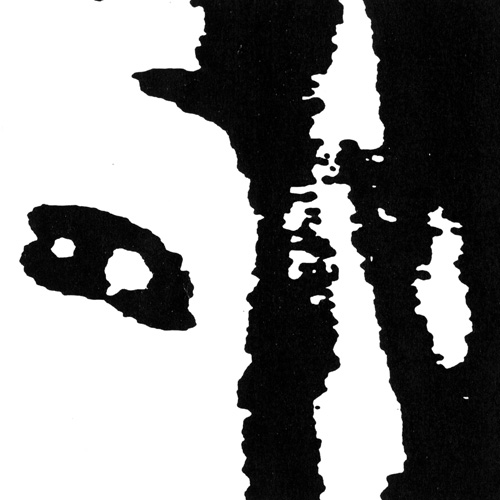
:format(jpeg):mode_rgb():quality(96)/discogs-images/R-298492-1089551430.jpg.jpg)
:format(jpeg):mode_rgb()/discogs-images/R-1218745-1201534377.jpeg.jpg)
:format(jpeg):mode_rgb()/discogs-images/R-700852-1180401286.jpeg.jpg)
:format(jpeg):mode_rgb():quality(96)/discogs-images/R-700847-1168372686.jpeg.jpg)
:format(jpeg):mode_rgb():quality(96)/discogs-images/R-1286283-1206489055.jpeg.jpg)
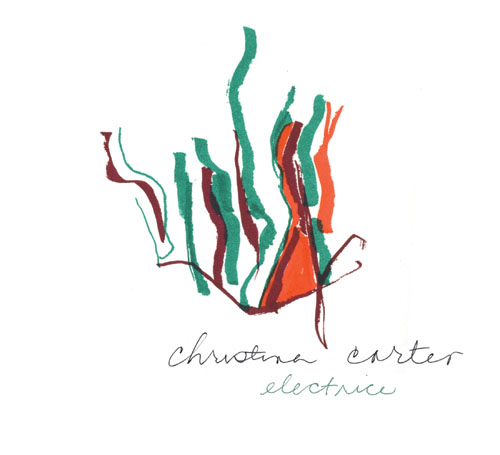
:format(jpeg):mode_rgb()/discogs-images/R-1286200-1206486868.jpeg.jpg)
:format(jpeg):mode_rgb()/discogs-images/R-1032005-1186162946.jpeg.jpg)
:format(jpeg):mode_rgb()/discogs-images/R-1468860-1297263458.jpeg.jpg)
:format(jpeg):mode_rgb()/discogs-images/A-211245-1255265511.jpeg.jpg)
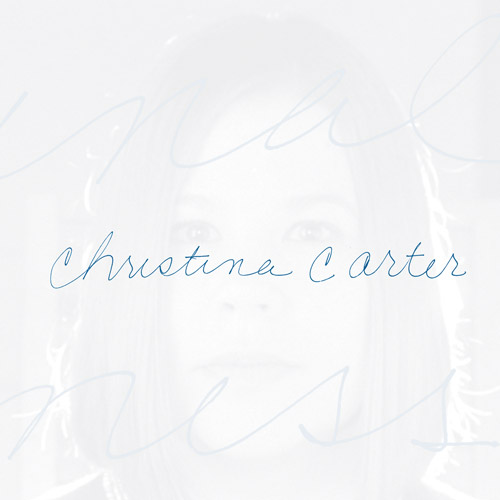
:format(jpeg):mode_rgb():quality(96)/discogs-images/R-1496407-1227989755.jpeg.jpg)
:format(jpeg):mode_rgb()/discogs-images/R-1907729-1276033472.jpeg.jpg)
:format(jpeg):mode_rgb()/discogs-images/R-2009129-1276033563.jpeg.jpg)
:format(jpeg):mode_rgb()/discogs-images/R-2031876-1276033745.jpeg.jpg)
:format(jpeg):mode_rgb()/discogs-images/R-2686960-1296572959.jpeg.jpg)
:format(jpeg):mode_rgb()/discogs-images/R-2420504-1410786509-6410.jpeg.jpg)
:format(jpeg):mode_rgb()/discogs-images/R-3032690-1321652149.jpeg.jpg)

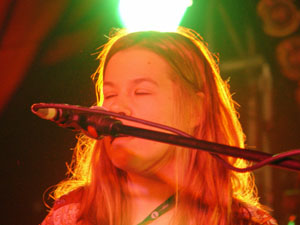
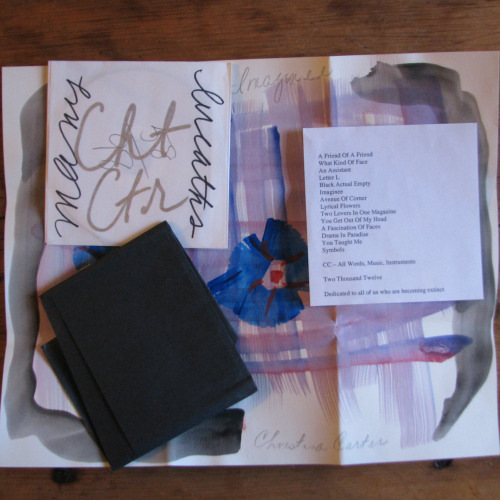

:format(jpeg):mode_rgb()/discogs-images/R-5035118-1382724644-6065.jpeg.jpg)
